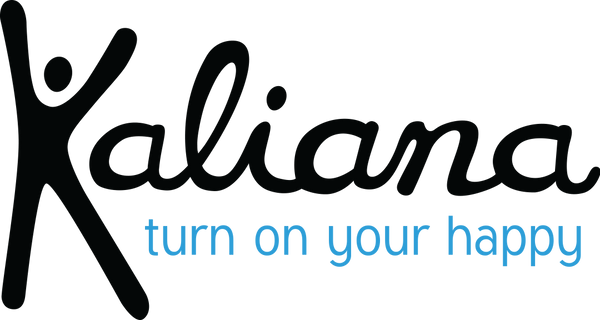Vitamin C: The Power of Kindness to Heal the Body
![]() Oct 30, 2019
Oct 30, 2019

Energy, Resonance, & Vibratory Rate for Healing
Since 1976, I've been observing how the body uses natural remedies to restore health. One thing I find most fascinating is how I've seen the alphabet vitamins impact emotions. By delivering emotional benefits, positive ripple effects can be seen in the body.
In physics, we see that everything—including inanimate objects (like tables), the air we breathe, foods, and our bodies—has an energy or vibration. Every living thing is made up of microscopic particles vibrating at a rate referred to as “resonance,” or preferably healthy resonance.
Fatigued, poorly nourished, and worn out cells make us susceptible to disease because they vibrate at a lower level, considered out of resonance.
In vibrational medicine, imbalances are treated by putting the correct frequencies back into the body to help restore balance, or healthy resonance. Some examples of effective vibrational healing methods include:
- homeopathy
- flower essences
- color-puncture
- sound healing
Vibrational remedies work with the body's natural healing rhythms. The positive shifts I have seen occur in adults and children over 3 decades, tells me they do more than just helping to restore balance...
...These subtle frequencies are essential to the body for maintaining balance, and potentially preventing some health issues—the same way Vitamin C prevents scurvy. Vibrations, such as sound and flower essences, can provide energy nutrients or vibra-nutrients for optimum health and emotional well being.
High quality essential oils, for instance, can also be effective because they have a high frequency. The higher the frequency, the more life force it can offer.
More life force = better health.
High-frequency foods rich in vitamins and minerals are no different. Simply changing to a high-frequency diet will improve your consciousness and health, because it raises the frequency, and therefore resonance of the body.
Vitamin C is a nutrient that offers a significant impact on our energetic resonance. It infuses the body with the energy of kindness and other positive emotions that vibrate at the highest frequency...
...In this world where kindness seems to be in such limited supply, isn't it wonderful that a nutrient can feed such positive energy to our emotional self?
As an expert in vibrational healing, I have repeatedly observed positive shifts in the following when vitamin C intake is increased:
- self-image
- emotional interactions
- ability to forgive
- patience
- gentleness of nature
Why do we need Vitamin C?
Vitamin C, also known as ascorbic acid, is water-soluble. The body needs it for numerous daily functions. But it is not stored by the cells so developing a deficiency is easier than you might expect...
...It should be replenished regularly by eating vitamin C-rich foods and/or taking dietary supplements.
The primary function of vitamin C is to promote tissue growth and repair all throughout your body. It helps in the formation of collagen, a protein used to make skin, tendons, blood vessels, and ligaments—and also keep them youthful and vibrant. Vitamin C also plays a role in wound healing, iron absorption, and maintaining bone health.
Severe deficiency of ascorbic acid has been known for centuries to result in a disease called scurvy. It is a serious condition that can lead to anemia, exhaustion, pain in the limbs, spontaneous bleeding, swelling in some parts of the body, and ulceration of the gums. If not treated via Vitamin C, it can also lead to death.
Scurvy was common among sailors during the 15th and 16th centuries.They would throw the afflicted overboard because it was seen so often, everyone believed the disease was contagious.
It was described back then as a disease that “ravaged both body and mind.” It eluded physicians for centuries until Dr. James Lind conducted an experiment and discovered that consuming oranges, lemons, and limes while at sea can prevent and cure the terrible ailment.
While scurvy is now considered a disease of the past, evidence suggests that many people still experience insufficient levels of vitamin C. So it’s important to understand the roles ascorbic acid has on both our physical and mental health.
A Powerful Antioxidant
Do you consume a glass of orange juice or vitamin C tablets when the sniffles come? Megadosing on vitamin C is a common practice promoted by Nobel laureate Linus Pauling in the 1970s. He advocated the intake of vitamin C in high doses (up to 2,000 mg a day - an amount equivalent to 12 to 24 oranges) to prevent colds and chronic diseases.
As one of the best-known antioxidants, vitamin C can boost the immune system. Our daily lifestyle habits (i.e. smoking, lack of exercise, poor diet) and environmental elements (i.e. viruses, pollution, radiation and electro-magnetic frequencies/EMF) make us vulnerable to free radicals that harm healthy cells...
...When free radicals accumulate, it can lead to oxidative stress which has been linked to chronic diseases and certain types of cancers.
A 2015 study shows that consuming more vitamin C can increase your blood antioxidant levels by up to 30%. This can strengthen the body’s natural defenses against inflammation. It is so powerful that it can also help in the regeneration of other antioxidants within the body such as vitamin E.
In a recent study, researchers recommend a higher intake of vitamin C in patients with metabolic syndrome to prevent antioxidant depletion. Metabolic syndrome is a serious illness caused by low-grade inflammation. Symptoms include abdominal obesity, high blood pressure, high blood sugar, high levels of triglycerides, and low levels of LDL (good cholesterol).
Why Your Body Needs Vitamin C
The recommended dietary allowance (RDA) for vitamin C may vary by age, present health condition, and lifestyle. For instance, a healthy male adult aged 19 and older needs 90 mg of ascorbic acid per day. But a male smoker in the same age range needs 35 mg more because he is under increased oxidative stress from cigarette smoke, making his RDA 125 mg/day.
Scientists are continuously studying vitamin C to fully understand how it affects health. Here are several reasons why your body needs ascorbic acid:
1. Lower Blood Pressure
High blood pressure has been linked to heart disease, which is the leading cause of death worldwide. An animal study found that vitamin C can lower blood pressure in both people with and without high blood pressure. Taking an ascorbic acid supplement relaxes the blood vessels that carry blood from the heart, resulting in reduced systolic and diastolic blood pressure.
2. Fight Heart Disease
There are many factors that contribute to heart disease, including high levels of bad cholesterol and high blood pressure. Researchers found that vitamin C can lower the risk by 25%. Results were based on combined 293,172 participants who were asked to take at least 700 mg of ascorbic acid daily for 10 years.
The study concluded that consuming at least 500 mg of vitamin C daily, whether it's from supplements or a healthy diet, may reduce heart disease risk. It can also lower levels of “bad” cholesterol and blood triglycerides.
3. Reduce Blood Uric Acid
When there is too much uric acid in the blood, it can trigger gout symptoms. It involves inflammation of the joints and is incredibly painful. In a 2008 study, it was found that vitamin C can reduce uric acid in the blood and protect you from gout attacks.
More so, researchers followed 46,994 healthy males for over 20 years to know if vitamin C intake is linked to developing gout. It was discovered that subjects taking ascorbic acid supplements regularly had a 44% lower gout risk.
4. Prevent Iron Deficiency
We usually get iron from the food we eat and dietary supplements. But some forms of iron are easier to absorb than others. Vitamin C chemically reduces iron into a form that can be taken up more easily by cells. This is important for people following a meat-free diet as iron from plant-sources are poorly absorbed.
According to research, 100 mg of vitamin C is enough to improve iron absorption by 67%. Let’s not forget that iron is involved in the production of red blood cells and oxygen transport. This is why vitamin C is effective against anemia and its related symptoms.
5. Fights Infections
Vitamin C helps white blood cells (WBC) function better. These are the cells of the immune system involved in protecting the body against infection. In a 2015 study, preschool children were given probiotics with 50 mg of vitamin C daily for 6 months. It was concluded that supplementation reduced the incidence rate of upper respiratory tract infections.
In a randomized trial, vitamin C has proven to help the body overcome a cold faster. Men with below adequate or deficient vitamin C status supplemented with 500 mg of vitamin C for two weeks. After the treatment, the duration of infection with the common cold was reduced 59%.
6. Protect The Brain
Vitamin C has strong potential in preventing and perhaps alleviating Alzheimer’s Disease and other disorders caused by neurodegeneration. Low levels of ascorbic acid is actually linked to cognitive impairment. Researchers also observed that people with dementia have low levels of vitamin C in the blood.
A 2017 study has shown that supplementation with vitamins C and E is associated with a reduced risk of cognitive decline. This means it can protect your memory and thinking as you age. But further research is needed to determine its value as a prevention strategy.
7. Lower Risk for Some Cancers
In the Swedish Mammography Cohort, overweight women taking an average of 110 mg/day of vitamin C has a 39% lower risk of breast cancer compared to overweight women who are just consuming an average of 31 mg/day.
Several studies also found that increasing dietary intake of ascorbic acid is associated with decreased risk of stomach cancer. Lab experiments indicate that vitamin C inhibits the formation of carcinogenic N-nitroso compounds in the stomach.
8. Improved Blood Sugar Levels
A study published in the journal Diabetes, Obesity, and Metabolism found that type 2 diabetics who supplemented with vitamin C had reduced blood sugar spikes after meals. The participants in the study also had reduced blood pressure levels.
There are many other studies pointing to possible benefits from this vitamin. They all highlight the importance of ensuring you have an adequate levels at all times for better health and well being.
When You’re Running Low on Vitamin C...
Common risk factors for vitamin C deficiency include poor diet, too much alcohol consumption, smoking, severe mental illness, anorexia, and dialysis. Symptoms of vitamin C deficiency can take months to develop but there are subtle signs you should watch out for.
1. Bleeding and swollen gums
Because gums are partially made up of collagen, they become more sensitive when your vitamin C levels dip. It can lead to frequent gum bleeding that won’t heal as quickly. Swollen gums can also manifest as a result of inflammation.
2. Easy bruising
Lack of vitamin C can cause poor collagen production and weak blood vessels which lead to easy bruising. It’s usually the first obvious sign of a deficiency.
3. Slow wound healing
Wound repair is dependent, in part, on vitamin C as it strengthens the scar tissue that forms over wounds. Inadequate vitamin C levels lead to longer bleeding and slower healing of wounds.
As an antioxidant, ascorbic acid helps keep the skin free from wrinkles. It’s no surprise that a deficiency is associated with dry, inflamed, and wrinkled skin.
Collagen is needed by our blood vessels to maintain integrity and structure. A deficiency can result in weakened blood vessels in the nose causing the tiny ones to burst.
6. Frequent infections
Because Vitamin C stimulates our white blood cells, a deficiency can make you vulnerable to common infections like the flu, UTIs, or strep throat.
7. Fatigue and poor mood
Ascorbic acid plays a key role in energy production and mood stabilization. This is why a deficiency will easily throw both your energy and mood out of balance.
Eat These Foods for Vit. C!
The best source of vitamin C comes from fruits and vegetables. Eating a couple of citrus fruits daily will help you in achieving the RDA for vitamin C. But if your diet doesn't include servings of healthful foods, taking ascorbic acid supplements may be necessary.
The Office of Dietary Supplements recommends the daily allowance of vitamin C to be the following. (Although some experts believe that people should consume much more than the RDA for good health.)
- 90 mg for males
- 75 mg for females
- 85 mg when pregnant
- 120 mg when breastfeeding
- add an additional 35 mg for people who smoke
The Kakadu plum has the highest known concentration of vitamin C. It is an Australian native superfood containing 100 times more vitamin C than oranges, amounting to 5,300 mg per 100 grams.
Red acerola cherries are next in line. Just one-half cup (49 grams) can deliver 822 mg of ascorbic acid.
Apart from citrus fruits, other common foods rich in vitamin C include:
- cauliflower, broccoli, brussels sprouts
- leafy greens (cabbage, kale, spinach)
- cantaloupe
- kiwi
- pineapple
- papaya
- sweet potato
- berries (strawberries, blueberries, raspberries, cranberries)
- bell peppers
- tomatoes
Overall, a diet rich in vitamin C is an essential step to ensure good physical and emotional health. Not only can it promote iron absorption but also boots your antioxidant levels and immunity for disease prevention, a powerful mind, and robust positive attitude. Kindness is an essential emotion for our bodies, our relationships, our homes, and our communities.
Are you having difficulty forgiving, being patient, kind, compassionate, have a reduced sense of self-worth, or feel kinda numb and wish you could love someone close to you deeper than you do?
Perhaps you are feeling lonely or separate, having destructive thoughts, or find yourself fighting with others? Take a look at your vitamin C as potentially the friend you need.
The deeper your level of genuine kindness, the greater the bodies ability to rebound. Eating fruits and vegetables daily should cover your vitamin C needs but if you struggle to get enough from your diet, supplementation is an easy option.
Disclaimer: This article is not intended to provide medical advice, diagnosis or treat. This information is based on research and knowledge by the author, and the ideas are not intended as substitute for medical advice. As with any products it is suggested that you check with your medical practitioner prior to use. The author disclaims any liability arising directly or indirectly from the use of any products mentioned herein.
















There are no comments for this post.
Leave a comment